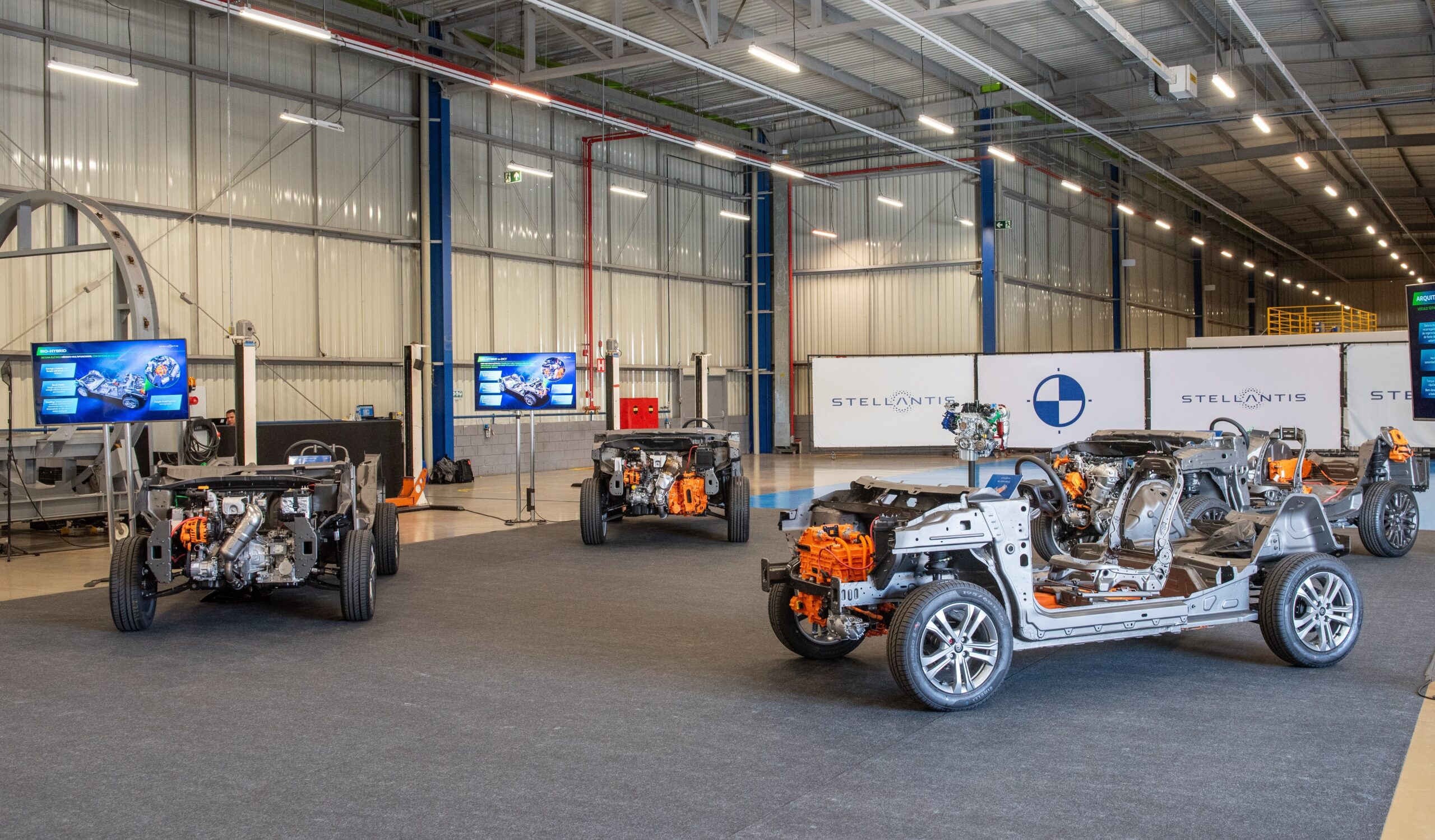The group has four platforms developed to be used by all its brands


By Alzira Rodrigues | 8/1/23 | Translated by Jorge Meditsch
Stellantis revealed its Bio-Hybrid project, which includes three platforms for flex-fuel hybrid vehicles and one for 100% electric cars. Developed to be used in models from all the group’s brands, they should debut in cars from the Brazilian market large volume manufacturers, Fiat and Jeep.
Antonio Filosa, Stellantis South America’s president, informed that the first flex-fuel hybrids would hit the market next year, and the 100% national full-electric car will be launched by 2030.
“We will not assemble kits imported from Asia. We are developing local suppliers to obtain a high nationalization level for our electrified models”, he asserted.
The Bio-Hybrid models should be 60% of Stellantis’ Brazilian production by 2030. “We are the company that nationalizes more components in Brazil, encouraging drive solutions combining ethanol and electrification and contributing with decarbonization from well to wheel”, said Filosa.
At the presentation of the new platforms at the Betim Automotive Pole in Minas Gerais, João Irineu, Stellantis South America Regulation Affairs’ vice president, emphasized the benefits of the Brazilian biofuel for decarbonization.
Remembering that hybrids and full-electrics should coexist for a long time, he said the company’s goal for Brazil is to have 20% of its sales in 2030 concentrated in full-electric cars.
Márcio Tonani, senior vice president of South America engineering technical centers, explained the new project platforms:
“They are based on different technologies that present diverse levels of thermal and electric drive combination. Each technology has its application and, together, they meet the needs of all consumers, enabling affordable hybrid systems based on flex thermal drive and electricity”.
The Bio-Hybrid platform has a new multifunction electric device that replaces both the alternator and the start motor. The equipment can provide mechanical and electric energy, supplying additional torque for the combustion engine and electric energy to recharge the additional 12V Lithium-ion battery.
“The system generated up to 3 kW, improving the car’s performance and reducing fuel consumption”, explained Tonini.
The Bio-Hybrid e-DCT platform, by its side, has two electric motors. The first one replaces the alternator and the start motor. The other one, bigger, is connected to the transmission. A 48 V Lithium-ion battery supports the system and is supplied by the devices. The electronic management can use three different modes – thermal, electric or hybrid – to optimize efficiency and economy.
The Bio-Hybrid Plug-in platform has a 380 V lithium-ion battery recharged at deceleration and supplied by the vehicle’s combustion engine or through an external power source (plug-in). It also has an electric motor that delivers power directly to the wheels. The system also works in thermal, electric or hybrid modes to optimize efficiency and economy.
The BEV 100% electric architecture is fully driven by a high voltage electric motor supplied by a 400 V battery, recharged by regeneration or plug-in. It provides instant torque for fast and responsive acceleration.
Stellantis South America’s president also used the event to talk about the good results in the region in the first semester, when its brands achieved a 23.7% share. Filosa said the company is the sector’s largest investor in Brazil and other South American countries.
“We are carrying out the R$ 16 billion investment cycle for 2018-2025 and already evaluating the next investment program, which could be higher than the current one”.
Assinatura era esperada desde junho do ano passado
Associadas responderam por mais de 50% do total de emplacamentos de modelos eletrificados
Início da produção do SUV foi acompanhado pelo presidente Lula e Geraldo Alckmin, ministro do…
Autonomia no modo elétrico supera 200 km
Nova geração de máquinas e tecnologias adicionais compõem um ecossistema para garantir rentabilidade, produtividade e…